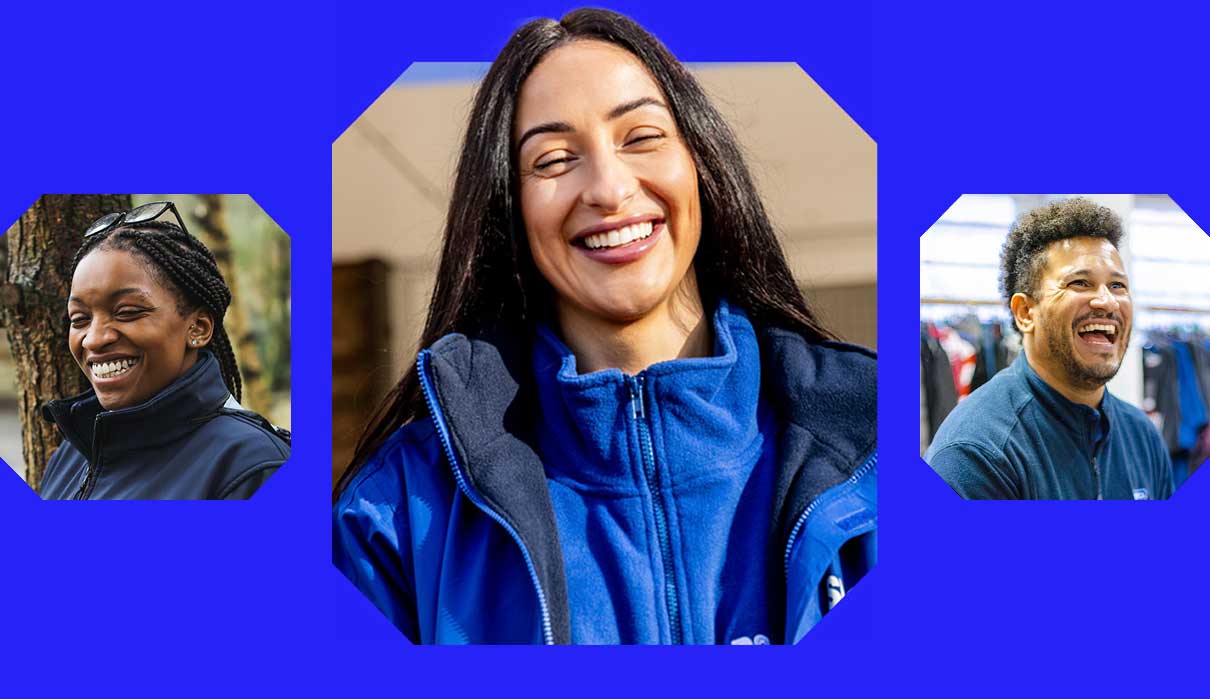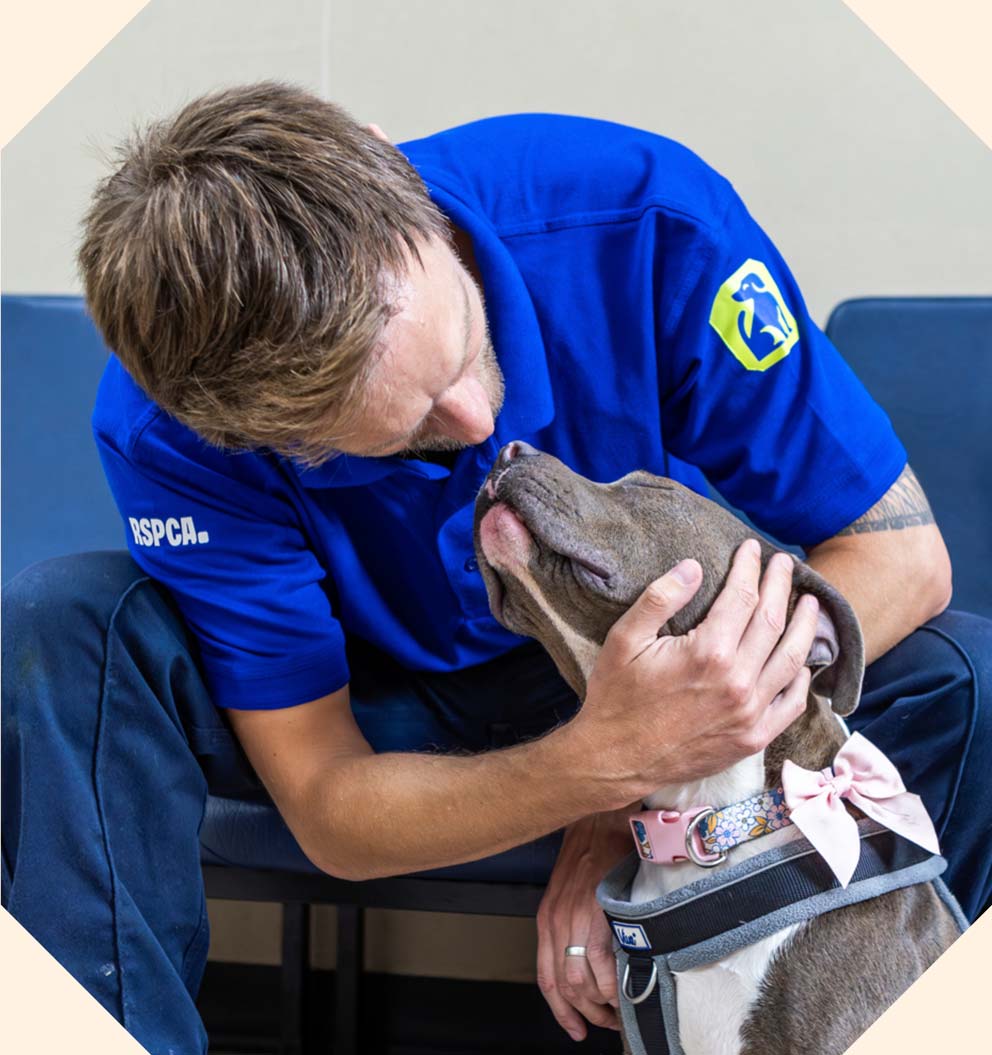Part two
What EDI means to us
Our colleagues highlight what EDI means to them personally and reflect on what matters from their areas of work, including what they would like to see the RSPCA do more of, to further embed inclusion.

How EDI makes us feel
“I absolutely love animals! When I started volunteering at my nearest RSPCA branch I was nervous, because I couldn’t imagine there would be many people there wearing a hijab, and who look like me.
“It matters, you know? What are they thinking about a Muslim woman? Will I fit in? To be honest, people I’m working with have been wonderful: really, really, friendly. We are getting to know each other so well. K, another volunteer, even confessed to me that she didn’t think Muslims kept pets! We laughed about that.
“I’m not local, and I was also warned about how some ‘small minded’ people in the village might react to me. So, I’ve had a couple of people stare hard at me, and one gentleman in particular made me feel really uncomfortable, muttered something under his breath about immigration, that I should “go back home” sort of thing. But then my colleagues stared hard back at him and asked him to leave! The look of shock on his face! I cried, not because of him, but because of my colleagues.
“Plus I’ll never forget what K said: “Don’t take paracetamol for someone else’s headache.” In other words, don’t let the man’s bigotry get me down. Wow! That’s being an ally. That’s what proper inclusion means to me!”
“When I first met you Pat Ismond, I’ll be honest I didn’t really get this inclusion stuff, especially that word equity! But I think I do now. So, if I’ve got this right, equity means that for everyone to compete equally for jobs, we should pay extra attention to the person who has had to come from further back to make it. Poorer backgrounds, for instance, or who had to leave school early. Folk, like me, who may not have all the fancy qualifications, but still have the life skills to make a difference to us and our work. Equity then is doing things to level things up?”
“Feeling heard, but also feeling safe to be who I want to be. I only recently discovered that I have Asperger’s Syndrome, and it’s a bit like a light has gone off in my head, explaining how and why I do what I do. If I could be myself and feel acknowledged for who I am, that’s inclusion!”
“The song ‘Don’t fence me in’ (version by Labrinth). I love it, really sums things up for me about the joy of no limits, and everyone able to be themselves, without harming others.”
Progression, NOT perfection, with no pressure to get things right
Staff reflections
This section focuses on some of the things that matter to our colleagues from their areas of work, including what they would like to see the RSPCA do more of to further embed inclusion.

Previous Page: Our journey
Next Page: Staff reflections